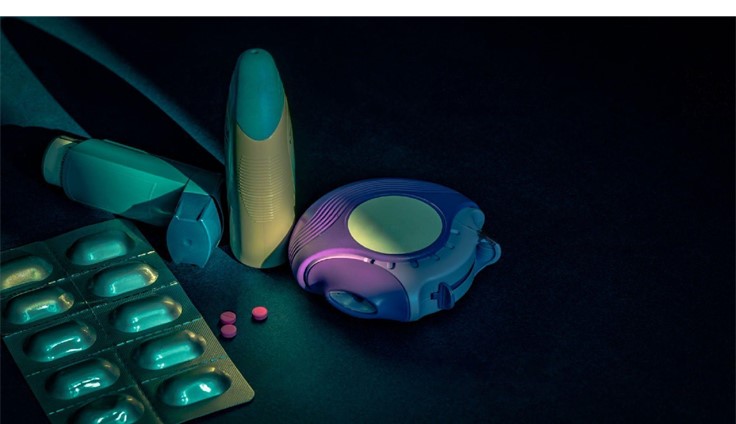
Do you have a drug allergy? Chances are, if you’ve ever taken medication, the answer can be no -but it can also be yes.
The occurrence of drug allergies in people is rare. However, you need to be well equipped with information.
People with drug allergies need to be careful about the medications they take, as even a small dose of the wrong drug can cause a severe reaction.
While there is no cure for drug allergies, testing and treatment options are available to help people manage their condition. So read on to learn more about drug allergies, their symptoms, and how to get treatment.
What is a drug allergy and what are the symptoms
Drug allergies are an immune response to a drug. The symptoms of drug allergies vary and can range from mild to life-threatening.
Drug allergies can cause a variety of symptoms, including: skin rashes, swelling, and difficulty breathing. It can be diagnosed with a series of tests conducted by an allergist. Treatment options are available to help people manage their condition.
There are four types of drug allergies:
1. Skin reactions:
This allergy type is most common and can cause a variety of symptoms, including itching, hives, and swelling.
2. Respiratory reactions:
People with this type of allergy will experience difficulty breathing and wheezing.
3. GI reactions:
This drug allergy can cause nausea, vomiting, and diarrhea.
4. Neurological reactions:
With this drug allergy type one would experience dizziness, confusion, and seizures.
Drug allergies are relatively common, so it’s important to be aware of the symptoms and how to get help if you think you may have one.
What causes drug allergies and how are they diagnosed
Drug allergies are caused as a result of the immune systems’ response to a particular drugs. The body recognizes the drug as a foreign substance and produces antibodies to fight it off.
When you’re exposed to the drug again, these antibodies can cause the aforementioned range of symptoms.
It is important to know what drugs you are allergic to or if you are allergic.
However, you cannot carry out diagnosis based on symptoms alone, as these reactions also exist as side effects of drug use. That is why it is paramount that you get the diagnoses done by a professional allergist.
Drug allergy testing or diagnosis is done with a skin test or blood test.
Skin tests involve exposing the skin to small amounts of the drug to see if there is a reaction. Blood tests measure the level of antibodies in the blood.
Common drugs that trigger allergic reactions

There are a variety of drugs that can trigger drug allergies. Some common drugs that cause drug allergies include penicillin, aspirin, and sulfa drugs.
These drugs can cause a variety of symptoms, including skin rashes, hives, difficulty breathing, and nausea. If you have a drug allergy, you need to avoid exposure to the drug that causes your allergy.
Other conditions that can result from drug allergies
Several other conditions can result from having reactions to drug allergens:
1. Serum sickness:
Serum sickness can trigger nauseation, skin rashes, pains in joints, and swelling. It typically occurs seven to ten days after exposure to the drug.
2. Drug-induced anemia:
This means that there would be lower production of red blood cells. It causes the same symptoms as anemia, which is: lethargy, difficulty in breathing, irregular heartbeats, and other issues.
3. DRESS:
(Drug rash with eosinophilia and systemic symptoms) This condition causes high white blood cell count.It may result in general edema, rashes, enlarged lymph nodes, and the reactivation of a latent hepatitis infection.
4. Nephritis:
A kidney inflammation is referred to as nephritis. It results in a rash, joint discomfort, as well as damage to the kidney.
What are the treatment options for drug allergies
There is no cure for drug allergies, and the best treatment option would be avoidance.
However, there are other treatment options available that can help people manage their condition.
Treatment options include over-the-counter medications such as antihistamines and ibuprofen, prescription medications such as corticosteroids and epinephrine, and desensitization or immunotherapy.
You may also need to undergo desensitization therapy if you’re allergic to a life-saving drug. It is important to talk with an allergist about the best treatment option for you.
How to manage anaphylaxis if you have a drug allergic reaction
If you have a drug allergy and experience anaphylaxis, it is important to seek medical attention immediately.
Anaphylaxis is a potentially life-threatening reaction that can cause difficulty breathing, swelling of the throat and tongue, and a sudden drop in blood pressure.
If you have been prescribed an epinephrine auto-injector (such as EpiPen®), use it right away and then call 911. Do not wait to see if the symptoms go away.
If you don’t have an epinephrine auto-injector, call 911 or go to the nearest emergency room. Anaphylaxis can be treated with injectable epinephrine and other medications.
It is important to work with an allergist to develop a plan to manage your drug allergy. This plan should include information on what to do in case of an emergency, as well as a list of the medications you need to avoid.
Drug allergies can be severe and even life-threatening. But with proper diagnosis and treatment, most people with drug allergies can manage their condition effectively.
How can you prevent drug allergies from developing
According to the doctor at Ear & Allergy Clinic Singapore, there is no sure way to prevent drug allergies from developing, but there are some precautions that can help you reduce your risk.
When starting a new medication, be sure to start with a low dose and increase it gradually as your body adjusts. You should also let your doctor know if you have any drug allergies or other medical conditions.
If you think you’ve developed a drug allergy, stop taking the drug and see an allergist for further evaluation.
Remember, with proper diagnosis and treatment, drug allergies can be managed effectively.